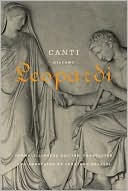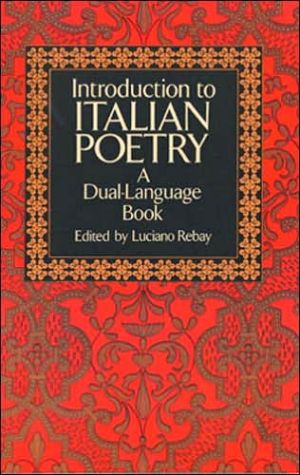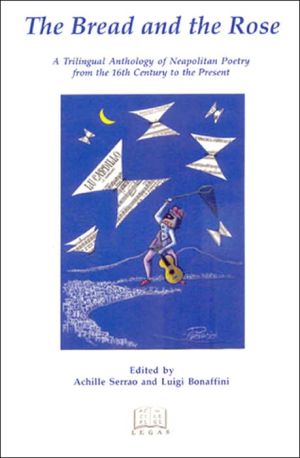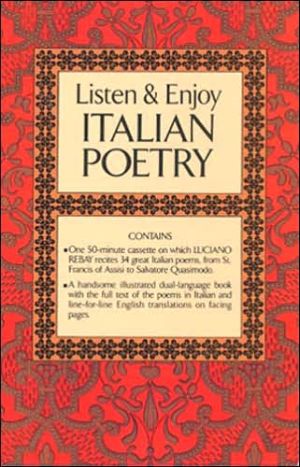Canti: A Bilingual Edition
Search in google:
Giacomo Leopardi is Italy’s greatest modern poet, the first European writer to portray and examine the self in a way that feels familiar to us today. A great classical scholar and patriot, he explored metaphysical loneliness in entirely original and new ways. Though he died young, his influence was enormous, and it is no exaggeration to say that all of modern poetry, not only in Italian, derives in some way from his work.Leopardi’s work is notoriously difficult to translate, and he has been less well known to English-language readers than his greatness and influence might suggest. Now Jonathan Galassi, whose translations of Eugenio Montale have been widely acclaimed, has produced a strong, fresh, direct version of this essential work that offers English-language readers a new approach to Leopardi. Galassi has contributed an informative introduction and notes that provide a sense of Leopardi’s sources and ideas. This is an essential book for anyone who wants to understand the roots of modern lyric poetry.Publishers WeeklyA towering figure among European Romantic poets and a national hero of Italian letters, the tormented, learned, sometimes hyperbolic Leopardi (1798-1837) has inspired other writers--and defied translators--since before his early death: the 41 elegies, odes, love poems, and meditations called Canti lie at the heart of his work. Leopardi wrote at the bloody start of the movements that brought Italy independence: early odes call on the nation's "glorious ancestors" to revive lost patriotic hopes. Yet his enduring sadness was not so much political as metaphysical, erotic, and nostalgic: "my heart is stricken," he writes, "to think how everything in this world passes/ and barely leaves a trace." Landscapes and villages, and indeed his own memory, yield fleeting joys that self-consciousness takes away: "If life is misery," one of his characters asks the moon, "why do we bear it?/ But we're not mortal,/ and what I say may matter little to you." Several canti lament the deaths of beautiful women. To Leopardi's elaborate stanzas Galassi (who has also translated Montale) brings a light touch and a feel for modern speech. This bilingual version comes with copious notes aimed at beginners, informed, but not overwhelmed, by Italian scholarship. (Nov.)



